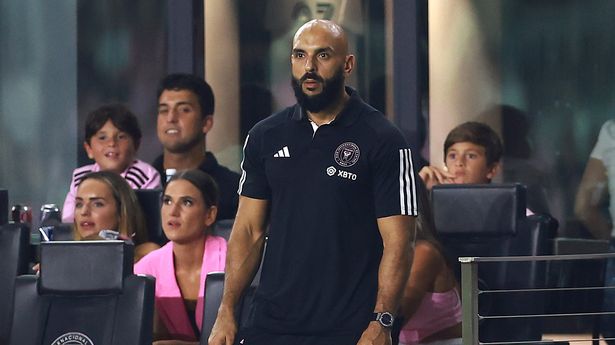
Yassine Chueko, Lionel Messi's personal bodyguard, has garnered widespread attention for his unwavering commitment to safeguarding the Argentine superstar during Inter Miami matches.
David Beckham, the president of Inter Miami, recommended Chueko for the role of Messi's security detail, recognizing the necessity of protecting the most high-profile soccer star ever to play in the USA.
During matches, Chueko's responsibilities encompass patrolling the perimeter of the pitch and closely monitoring Messi's every move. It is reported that Chueko receives an annual salary of $250,000 ($198,000) for his role in overseeing Messi's safety.
His vigilance and agility enable him to respond swiftly to any potential intruders attempting to approach the Miami captain. Nevertheless, his unwavering dedication to the position has significantly boosted his popularity on social media. Chueko's rapid response during a critical 97th-minute equalizer against FC Cincinnati in the US Open semi-final caught the attention of fans and quickly became a viral sensation on various social media platforms. Observant spectators noticed Messi's bodyguard sprinting up the touchline to stay close to the Argentine superstar.
Fans wasted no time sharing their reactions on social media, with one user remarking, "Have a look at Messi's bodyguard, this guy follows him EVERYWHERE." Another Twitter user posted, "Leo Messi's bodyguard at Inter Miami is omnipresent." A third fan added a touch of humor, stating, "Messi the GOAT has a bodyguard even on the pitch."
The vigilant presence of Messi's bodyguard unquestionably left an indelible impression on fans, highlighting the vital role he plays in ensuring Messi's safety both on and off the field. Moreover, his commitment to his job was on display not only on one occasion.
During a match, a fan wearing Barcelona colors managed to breach security and approach Messi, but Chueko and another individual promptly intervened to ensure Messi's safety.
Back in June, Inter Miami owner Jorge Mas outlined plans to significantly enhance security measures. He explained that players would be transported in buses and go through a dedicated tunnel to ensure their safety.
Importantly, these security protocols weren't limited to home games but were also implemented during away matches. Mas emphasized that these heightened security measures were not confined to matchdays but would become part of the players' daily routine.